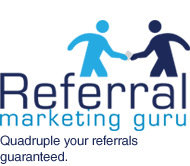Creating your network is important. It is crucial to business success. Having a network and not staying top of mind with your contacts doesn’t help anyone. People will not think of you unless you are in front of them.
24-7-30
After meeting someone for the first time you need to follow up quickly and consistently to embed yourself in their memory. One of the most successful and efficient strategies used is 24-7-30; respond within 24 hours of meeting, touch base again after a week and then again within the month. Each point of contact should be meaningful, different and more about them than you. You’ll then find, more often than not, that they are likely to remember you several months later.
Make sure you’re connected
Social media has its detractors but in a busy world it has created a quick, easy and effective way to stay in touch with people. It’s not just a question of connecting on LinkedIn or following people on Twitter, after all, Connecting is not enough. But that’s the start, connect and follow where appropriate but the key step is to engage. ‘Like’ and comment on status updates, job changes and forum posts. You can stay in sight and in mind even when you don’t see them in person for a long period of time.
Invite them out
Whatever you do, nothing beats personal contact. Where the opportunity arises and it’s practical, make time in your diary to see people in person. If you’re travelling, work out who you know en route or at your destination you should catch up with. Before you head out to the next networking event or conference, ask yourself who else you can invite. It’s a great way to catch up with people without adding the extra meeting in your diary. And if they know no-one else there, you become their host, drawing you closer together.
Pick up the phone
It’s easy to get carried away by the ability to e-communicate quickly. If you can’t meet in person, speaking in person certainly makes a difference. Even in a quick phone call you can cover more depth, understand more from tone and pitch and ask more questions that you are likely to do over email or social networks. Just remember to ask if it’s a good time to speak. We can wait to reply to emails when it suits us but can’t always do the same with phone calls.
I saw this and thought of you
As I explained in this blog, you can make a tremendous impact simply by looking out for articles, blogs and other information that will be of interest to people in your network. The key to a lot of the tips here is making the communication about the other person rather than about you. And sending a third party article regarding an area your contact is interested in will reflect well on you
Email and Text: Email is a powerful tool.
People do not use it enough to communicate on a regular basis. Everyone has email today but not everyone uses it properly. How often do you send your network an email, letting them know how you are doing and/or asking them how they are doing? People are willing to share information one on one much quicker than they are willing to so publicly. Use emails to communicate industry trends, events, and news with your contacts. They’ll be glad to hear from you, and will think of you next time they need help with a product or service that you offer. Text messaging is also valuable. It’s simple and short and it does a really good job of reminding people that you exist. When was the last time you sent 20 people a text message, one by one, thanking them for being in your life? We can never get or give enough gratitude.
E-Newsletter
Why would you have a personal e-newsletter? Because the technology is easy, and it’s good personal branding. Your monthly or quarterly e-newsletter should be useful to your readers. For example, if many of your connections are in the tech industry, share current news about new gadgets or reviews of new technology from reputable sources. Don’t forget to include personal updates, such as major milestones, ongoing education or training, events you’ve attended or projects you are working on.

